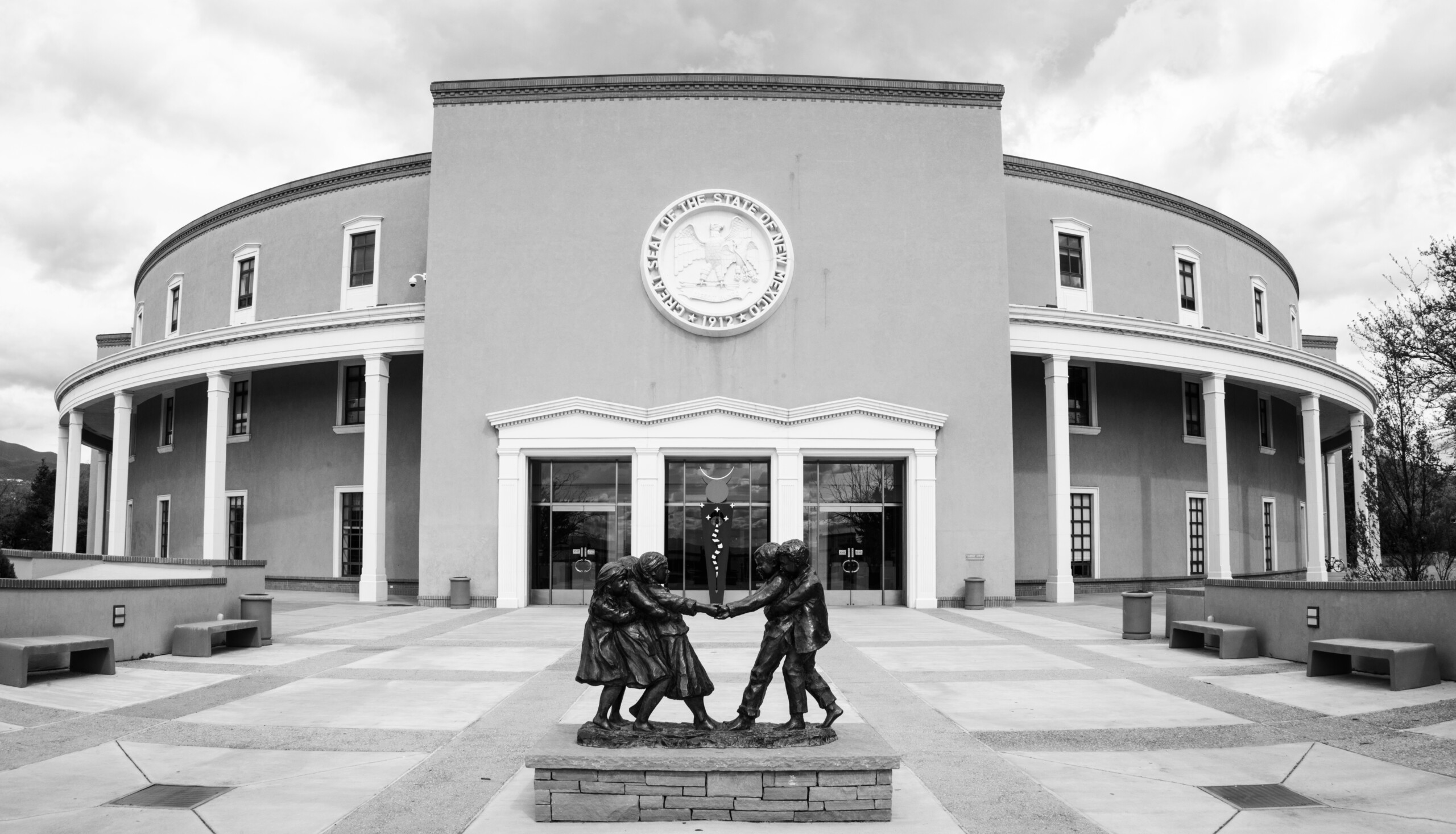
Last updated: September 10, 2025
For media requests and general inquiries: Alex McCausland, Communications Manager, media@nmvoices.org
Download a month-by-month PDF here. (September 10, 2025; 11 pages)
Now that the One Big Beautiful Bill Act (OBBBA) has been signed into law, New Mexico lawmakers will be forced to defend against cuts to the income support programs that lift many of our families and children out of deep poverty. Below is a timeline of the policy changes that will impact New Mexico’s health care and food assistance programs.
- Expanded SNAP work requirements take effect as soon as the USDA issues formal guidance, and New Mexico will no longer be eligible for waivers based on unemployment rates, except for SNAP participants in Luna County.
- Impact on New Mexico: 28 counties will become ineligible for work requirement waivers, and 54,000 New Mexicans could lose some or all of their SNAP benefits.
- Immigrants with protected status (e.g., refugees and asylees) are no longer eligible for SNAP, and those receiving benefits are likely to lose them at their next recertification.
- Impact on New Mexico: Approximately 2,000 immigrants with lawful status in New Mexico will lose all SNAP benefits.
- Note: People who are undocumented have never received SNAP.
- Rural Health Transformation Program grants become available for the next five years. This will be before most of the health care cuts take effect, and will only offset 37% of the estimated total for national cuts rural communities will face over the next 10 years.
- Impact on New Mexico: It is not clear how much funding New Mexico will receive, but the amount may be at least $100M per year for five years.
- Enhanced premium tax credits expire, making health insurance more expensive throughout the marketplace.
- Impact on New Mexico: New Mexicans that previously received an EPTC could now face 4.3% higher premiums on average, and many may become uninsured due to increased costs. 25% of all marketplace enrollees in New Mexico are small business owners or self-employed workers, who will see large increases in health insurance costs.
- Most categories of immigrants with lawful status lose access to Medicaid.
- New Mexico’s portion of administrative costs for SNAP increases to 75%.
- Impact on New Mexico: New Mexico will have to pay an additional $21.3 million for SNAP administration.
- Medicaid eligibility checks are increased to every six months instead of once a year. Additional paperwork and bureaucracy will cause many to lose health insurance coverage.
- Impact on New Mexico: New Mexico will pay an initial administrative cost of $32.7 million, and $6.5 million annually.
- Work requirements for people receiving Medicaid under the eligibility expansion go into effect, although the U.S. Health and Human Services secretary can delay implementation until the end of 2028. Individuals ages 19 to 64 must report 80 hours of work or other “community engagement activities” (or receive a qualifying exemption) to maintain eligibility.
- Impact on New Mexico: Up to 187,000 New Mexicans could lose health insurance.
- Note: Requirements must be met prior to enrollment and at every recertification period.
- Reduction in provider taxes begins, decreasing from 6% to 3.5% by 2032.
- Impact on New Mexico: Provider tax revenue funds New Mexico’s portion of directed payments for hospitals.
- States must pay a share of SNAP benefits based on benefit error rates. Implementation will be delayed until October 2028 or 2029 for the states with the highest error rates in October 2027.
- Impact on New Mexico: New Mexico will have to pay up to $153 million to keep SNAP benefits funded at current levels.
- Phase down of state-directed payment rates begins. State-directed payments help boost payment rates for providers that accept Medicaid reimbursement, and prevent hospital closures.
- Impact on New Mexico: This phase down, in conjunction with reduced provider rates, could mean the closure of 6-8 New Mexico hospitals. As a result, rural communities in New Mexico will have to travel further for life-saving care.
- Cost sharing for people with Medicaid coverage who are part of the expansion population (i.e., have incomes above 100% of the federal poverty level) take effect, and states may allow providers to deny services to those who cannot pay the required co-payments for care.
- Impact on New Mexico: 254,000 New Mexicans enrolled in Medicaid will be subject to copays that increase the cost of care.
